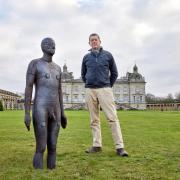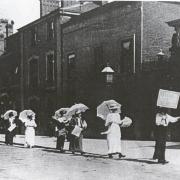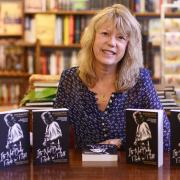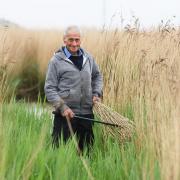The murder of a village bobby, born near Downham Market 130 years ago, had a world-wide impact and will soon be marked in his native Norfolk

George Gutteridge was on his way home when a car roared down the village lane. Ever diligent the policeman waved down the speeding driver and began taking notes.
Four hours later his body was discovered in a pool of blood.
George was born in Wimbotsham, near Downham Market, in 1889. He worked as bricklayer before joining the police and moving to the Essex village which became his beat - and the site of his death.
Bernard Mullin, of Hingham, was first told the tragic story by his mother - who was a child when Stapleford Abbots was devastated by the murder.
Working with George's descendants and the Essex Police Museum, Bernard discovered how the 1927 murder led to the launch of free emergency calls, and became the first conviction to rely on ballistics evidence.
The two men in the stolen speeding car were London criminals Frederick Browne and William Kennedy. They shot the village policeman twice in the face. Bleeding heavily he fell, and the killers shot him again through each eye - believing that the eyes held the last image before death and could provide damning evidence against them.
However, it was the bullets which conclusively linked the killers to the crime.
A delivery driver discovered the body. "Rounding a slight bend he had noticed a dark figure lying in the road with a trail of blood leading to it," said Bernard. "This was his friend and village policeman PC George William Gutteridge, known locally as Bill."
He drove to call for help from a Post Office but had no money and it took the intervention of the post mistress to get the call put through. A coroner later criticised the operators and called for better telecommunications for rural police.
Outrage at the brutality and the delay in beginning a murder hunt led to a national campaign for telephones in rural police stations. The RAC and AA agreed to give police keys to roadside call boxes, and telephone operators were instructed to put emergency calls through without question or payment.
It was four months before the killers were captured. Within another four months they had been convicted and hanged.
Bernard, a retired motor engineer and teacher, has written a book, Bills Beat, about the life and death of the policeman, gunned down aged just 38. "A patriotic man, he was a reservist with the local detachment of the Norfolk Regiment. I have also included much information on the hardship his widow Rose and their two children endured after the murder," said Bernard, who worked as a teacher in prisons, and has four relatives serving with Norfolk police. He arranged for a memorial in Stapleford Abbotts parish church and hopes another will be installed in Wimbotsham village hall later this year.
Bill's Beat, by Bernard Mullin, is published by Brown Dog Books. Available on Amazon or by calling 01953 852528



























